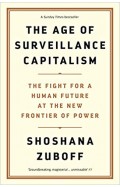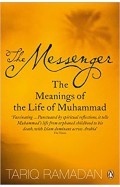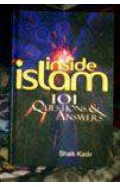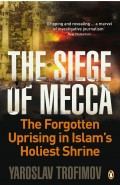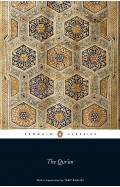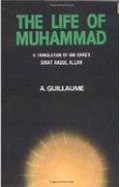- Home
- Sports & Entertainment
- Football
- Religion & Spirituality
- Islam
- Islamic Law of Contract - Applications in Islamic Finance
Islamic Law of Contract - Applications in Islamic Finance
By: Dr Muhammad Tahir Mansoori
-
Rs 1,200.00
- Rs 1,500.00
- 20%
You save Rs 300.00.
Due to constant currency fluctuation, prices are subject to change with or without notice.
Islamic Law of Contract: Applications in Islamic Finance is a systematic exposition of Shariah rules in the field of Fiqh al-Mu’amlat (Islamic law of Contracts and Transactions), with their applications in the modern business and commercial transactions. The book deals with the general theory of contracts in Islam, formation of contract, concepts of riba, gharar, maysir and their effect on the contract. It also discusses in lucid manner specific nominate contracts such as contracts of sale, ijarah, partnership, mudarabah, surety-ship, rahn and many other contracts that constitute the corpus of Islamic commercial law. While dealing with these contracts, the focus of the book has been on their modern applications in banking and finance.
The book also deals with current issues of Islamic finance, such as the use of hiyal (stratagems) in Islamic banking, Ideal maqasid in Islamic finance, Takaful, Islamic microfinance, and screening norms of equities. The book is an attempt to introduce Fiqh al-Muamlat as a viable and vibrant commercial law of the 21st century that has the potential to meet the needs of modern economic and commercial life.
Islamic Law of Contract: Applications in Islamic Finance is a systematic exposition of Shariah rules in the field of Fiqh al-Mu’amlat (Islamic law of Contracts and Transactions), with their applications in the modern business and commercial transactions. The book deals with the general theory of contracts in Islam, formation of contract, concepts of riba, gharar, maysir and their effect on the contract. It also discusses in lucid manner specific nominate contracts such as contracts of sale, ijarah, partnership, mudarabah, surety-ship, rahn and many other contracts that constitute the corpus of Islamic commercial law. While dealing with these contracts, the focus of the book has been on their modern applications in banking and finance.
The book also deals with current issues of Islamic finance, such as the use of hiyal (stratagems) in Islamic banking, Ideal maqasid in Islamic finance, Takaful, Islamic microfinance, and screening norms of equities. The book is an attempt to introduce Fiqh al-Muamlat as a viable and vibrant commercial law of the 21st century that has the potential to meet the needs of modern economic and commercial life.
Islamic Law of Contract - Applications in Islamic Finance
By: Dr Muhammad Tahir Mansoori
Rs 1,200.00 Rs 1,500.00 Ex Tax :Rs 1,200.00
Family Law in Islam - Theory and Application
By: Dr Muhammad Tahir Mansoori
Rs 450.00 Rs 600.00 Ex Tax :Rs 450.00
Zubin Mehta: A Musical Journey (An Authorized Biography)
By: VOID - Bakhtiar K. Dadabhoy
Rs 472.50 Rs 1,050.00 Ex Tax :Rs 472.50
Building Social Business The New Kind Of Capitalism That Serves Humanitys Most Pressing Needs
By: Muhammad Yunus
Rs 320.00 Rs 400.00 Ex Tax :Rs 320.00
The Age of Surveillance Capitalism: The Fight for a Human Future at the New Frontier of Power
By: Professor Shoshana Zuboff
Rs 1,621.75 Rs 2,495.00 Ex Tax :Rs 1,621.75
Family Law in Islam - Theory and Application
By: Dr Muhammad Tahir Mansoori
Rs 450.00 Rs 600.00 Ex Tax :Rs 450.00
Chiltern Classic A Tale of Two Cities
By: Charles Dickens
Rs 5,196.00 Rs 6,495.00 Ex Tax :Rs 5,196.00
The Messenger: The Meanings of the Life of Muhammad
By: Tariq Ramadan
Rs 2,076.00 Rs 2,595.00 Ex Tax :Rs 2,076.00
Rumi :The Big Red Book The Great Masterpiece Celebrating Mystical Love And Friendship -
By: Coleman Barks
Rs 2,156.00 Rs 2,695.00 Ex Tax :Rs 2,156.00
Most Beautiful Names Of Allah
By: Samira Fayyad Khawaldeh
Rs 1,231.75 Rs 1,895.00 Ex Tax :Rs 1,231.75
Building Social Business The New Kind Of Capitalism That Serves Humanitys Most Pressing Needs
By: Muhammad Yunus
Rs 320.00 Rs 400.00 Ex Tax :Rs 320.00
The Age of Surveillance Capitalism: The Fight for a Human Future at the New Frontier of Power
By: Professor Shoshana Zuboff
Rs 1,621.75 Rs 2,495.00 Ex Tax :Rs 1,621.75
Family Law in Islam - Theory and Application
By: Dr Muhammad Tahir Mansoori
Rs 450.00 Rs 600.00 Ex Tax :Rs 450.00
Chiltern Classic A Tale of Two Cities
By: Charles Dickens
Rs 5,196.00 Rs 6,495.00 Ex Tax :Rs 5,196.00
No recently viewed books available at the moment.
Zubin Mehta: A Musical Journey (An Authorized Biography)
By: VOID - Bakhtiar K. Dadabhoy
Rs 472.50 Rs 1,050.00 Ex Tax :Rs 472.50
Islamic Law of Contract - Applications in Islamic Finance
By: Dr Muhammad Tahir Mansoori
Rs 1,200.00 Rs 1,500.00 Ex Tax :Rs 1,200.00
Family Law in Islam - Theory and Application
By: Dr Muhammad Tahir Mansoori
Rs 450.00 Rs 600.00 Ex Tax :Rs 450.00
Building Social Business The New Kind Of Capitalism That Serves Humanitys Most Pressing Needs
By: Muhammad Yunus
Rs 320.00 Rs 400.00 Ex Tax :Rs 320.00
The Age of Surveillance Capitalism: The Fight for a Human Future at the New Frontier of Power
By: Professor Shoshana Zuboff
Rs 1,621.75 Rs 2,495.00 Ex Tax :Rs 1,621.75
Family Law in Islam - Theory and Application
By: Dr Muhammad Tahir Mansoori
Rs 450.00 Rs 600.00 Ex Tax :Rs 450.00
Chiltern Classic A Tale of Two Cities
By: Charles Dickens
Rs 5,196.00 Rs 6,495.00 Ex Tax :Rs 5,196.00











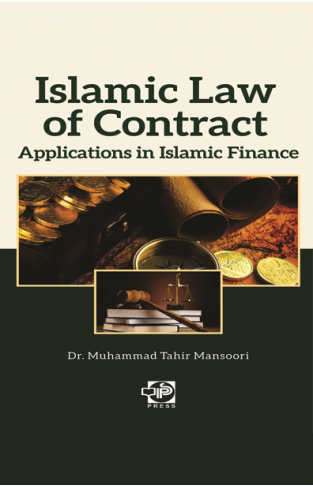
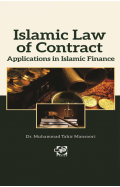

-120x187.jpg?q6)






